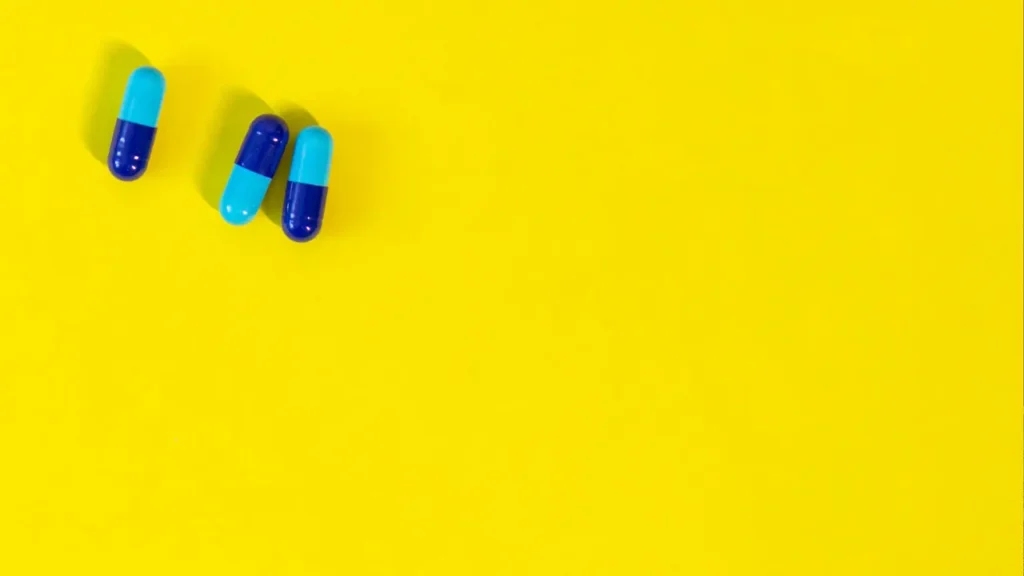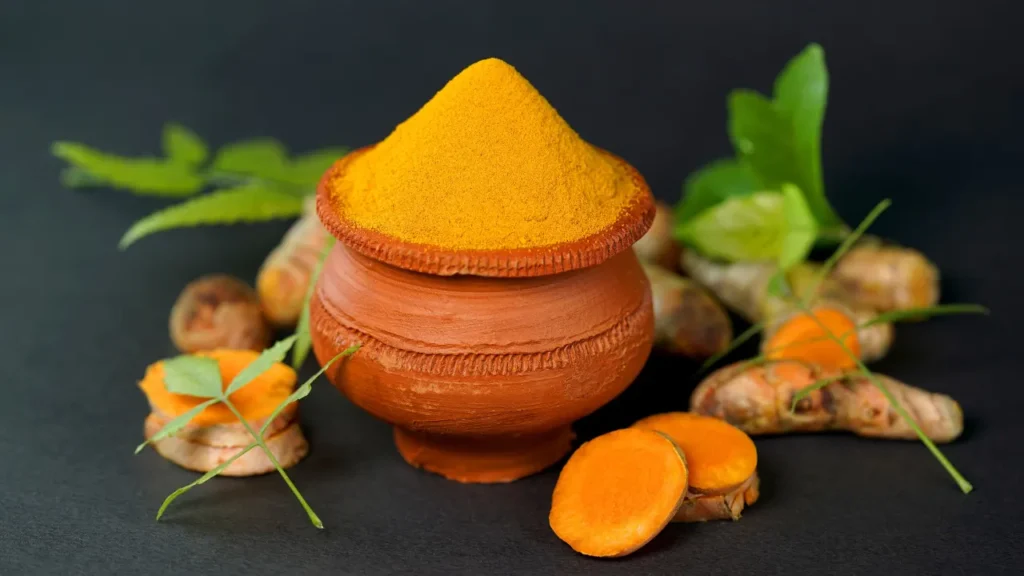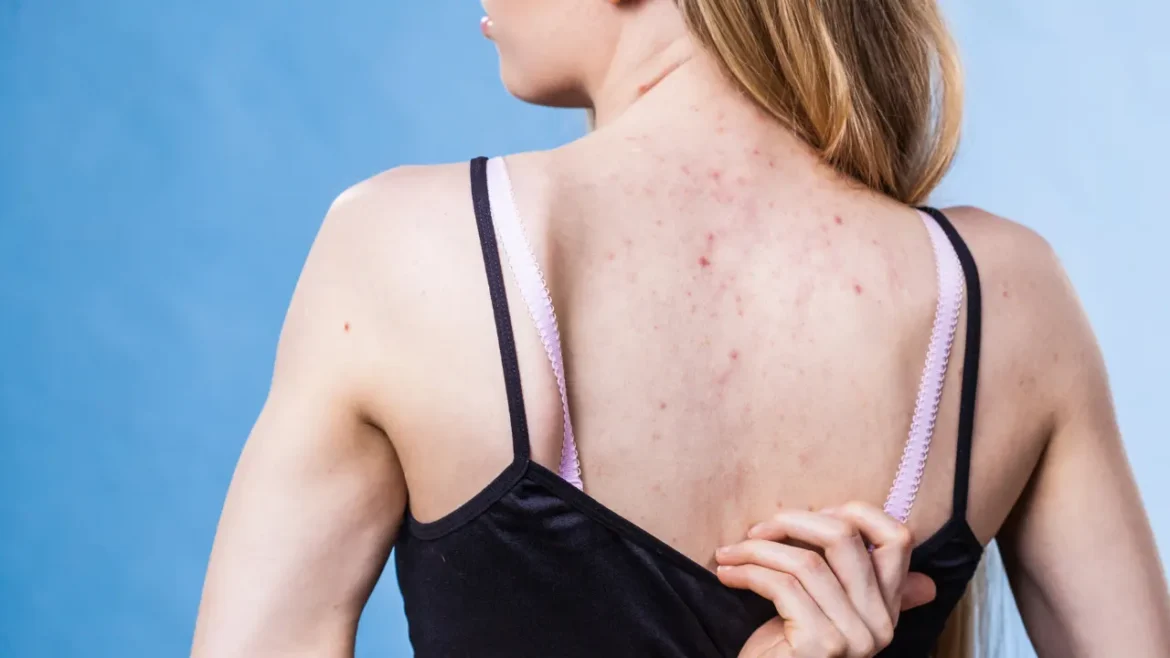Description
Acne keloidalis nuchae is a dermatological disorder that can appear as follicular-based papules, nodules, and pustules that can form on the nuchal region of the neck and occipital scalp. The lesions can be extremely itchy, and they have the potential to swell and infect, leaving behind keloidal scars. Acne keloidalis nuchae appears to affect African American men more frequently than other races, with reported cases of as much as 16.5% in this demographic, however, how widespread the condition is remains undetermined. Additionally, those who have tightly curled hair, a history of short hairstyles, or chronic neck irritability are more likely to experience it.
You May Also Like:
SMILZ CBD GUMMIES VS PARTNERED PROCESS CBD GUMMIES
KRIA BOTANICALS VS PARTNERED PROCESS: TWO CBD CONTRACT MANUFACTURERS COMPARED
Acne Keloidalis Nuchae: Description, Causes, And Treatment Protocol is an original (HealthXWire) article.
Possible Causes
Although the pathogenesis and etiology of acne keloidalis nuchae remain unsolved, a number of factors have been linked to its emergence, including the following:
Fungal and Bacterial Infections: Acne keloidalis nuchae is thought to be most frequently caused by bacterial and fungal infections. There is also a common skin bacterium called staphylococcus aureus that is linked to the growth of acne keloidalis nuchae. Acne keloidalis nuchae is also linked to fungal infections, especially those brought on by the Malassezia species. These infections have the potential to cause an immunological reaction that results in the formation of follicular-based nodules and papules.
Genetic Predisposition: People of African descent are prone to developing acne keloidalis nuchae more often, which raises the possibility that the condition may be genetically predisposed. Numerous studies have discovered genetic polymorphisms connected to acne keloidalis nuchae, involving those in charge of the body’s immune system and collagen formation.
Autoimmune Disorders: Acne keloidalis nuchae has additionally been linked to autoimmune diseases like sarcoidosis and lupus. These illnesses cause inflammation and scarring when the body’s defense mechanism attacks healthy tissues, involving hair follicles.
Exacerbating and Mitigating Factors
Acne keloidalis nuchae severity may be exacerbated or alleviated by numerous solutions that include:
Hair-cutting and Shaving: Shaving and hair-cutting can aggravate the skin and cause lesions of acne keloidalis nuchae. By introducing bacteria inside the skin, the usage of razors or clippers may only worsen the infection.
Pressure and Friction: Keloidal scars can develop as a result of acne keloidalis nuchae outbreaks which can be made worse by friction and pressure on the region that is affected. The issue can also get worse when you wear tight collars, headbands, or helmets.
Sun Exposure: Sunlight exposure can exacerbate acne keloidalis nuchae infections due to the UV light that can cause inflammation and hyper pigmented scarring.
Chemical Irritants: Inflammation and irritation brought on by chemical irritants like hair products can worsen acne keloidalis nuchae. Hair products containing harsh chemicals, like sulfates and alcohol, should be avoided by those who have acne keloidalis nuchae.
Genetics: Acne keloidalis nuchae growth may also be influenced by genetics. Acne keloidalis nuchae runs in families, thus those who have a history of the skin disorder are more likely to get it themselves.

Standard Treatment Protocols
A combined approach of medicinal and surgical procedures is frequently used for treating acne keloidalis nuchae. The purpose of this therapy is to alleviate swelling, manage fungal or bacterial infections, and stop keloidal scarring.
Medical Therapies: Usually, oral and topical medicines are used in medical treatments for keloidalis nuchae acne
- Topical Steroids
Standard first-line for treating acne keloidalis nuchae include topical steroids. They function by regulating the immune system and decreasing inflammation. Betamethasone dipropionate and clobetasol propionate are the typical topical steroids administered to treat these issues.
- Topical Retinoids
Topical retinoids include vitamin A derivatives with anti-inflammatory and cell-turnover properties. The most typical topical retinoids prescribed to treat this problem are adapalene and tretinoin.
- Antibiotics
The treatment of bacterial infections can aid in the growth of acne keloidalis nuchae, and it frequently involves the application of antibiotics. Minocycline and doxycycline are two typical medicines that are used for treating this kind of infection.
- Oral Steroids
For severe or pervasive occasions with acne keloidalis nuchae, oral steroids might be used. They function by calming inflammation and inhibiting the immune system. Oral steroids, nevertheless, can have considerable negative side effects and must be used carefully.
- Isotretinoin
A potent oral drug called isotretinoin is used for treating severe acne. It functions by minimizing skin oil secretion and calming the immune system. Isotretinoin ought to only be used under the strict supervision of a medical practitioner due to the serious negative side effects it may cause.
Surgical Therapies: Surgery may occasionally be required for treating acne keloidalis nuchae. These regular surgical procedures are used for curing this disorder:
- Excision
Excision entails removing the damaged region of the skin alongside fusing the wound’s borders together. Small lesions or nodules that are resistant to other treatments are usually the only ones that receive this type of procedure.
- Skin Grafts
Skin grafts involve transplanting skin from another location of the body and applying it to the injured area. When scarring is more extensive or excision may result in severe scarring or deformity, skin graft procedures may be required.
Laser Therapy: In order to remove acne keloidalis nuchae infections and keloidal scars, laser therapy may be involved, which is a procedure that uses high-intensity light. To get the best results, this procedure—which is commonly done in a dermatologist’s office—may need to be repeated several times.
Cryotherapy: Cryotherapy includes freezing acne keloidalis nuchae infections and keloidal scars by using liquid nitrogen. To get the best results, this procedure—which is commonly done in a dermatologist’s office—may need to be done multiple times.


Treatment Options
Many complementary and alternative treatments are being suggested by doctors for the cure of acne keloidalis nuchae along with conventional medical and surgical procedures. The following herbal medicines, dietary supplements, and other natural treatments fall under this category:
Nutritional Supplements: As alternative treatments for acne keloidalis nucha come out, a number of nutritional supplements are being suggested:
- Omega-3 Fatty Acids
Acne keloidalis nuchae patients may benefit from omega-3 fatty acids, which are anti-inflammatory and can be obtained from fatty fish, walnuts, and flaxseeds. These vital fatty acids can be consumed orally as dietary supplements or be added to food.
- Zinc
The mineral, zinc, which is important for the immune system and wound repair, may also be beneficial for those suffering from keloidalis nuchae acne. Zinc can be consumed orally in the form of a supplement or be added to food like pumpkin seeds, beef, and oysters.
- Vitamin D
Some studies have demonstrated that vitamin D has immune-modulating properties that could decrease the development of keloidal scars over time.
Herbal Remedies: The following list of herbal treatments has been suggested for curing acne keloidalis nuchae:
- Tea Tree Oil
For those having acne keloidalis nuchae, tea tree oil, an all-natural antibacterial and anti-fungal agent, might prove to be useful. To minimize swelling and manage fungal or bacterial infections, tea tree oil is advantageous if it is administered directly to the affected region.
- Aloe Vera
Those suffering from acne keloidalis nuchae may benefit from aloe vera, an herb having anti-inflammatory properties. Applying aloe vera gel topically on the affected region can help to reduce swelling and speed up the healing process.
- Apple Cider Vinegar
Due to its antibacterial properties, apple cider vinegar can help people suffering from acne keloidalis nuchae in reducing inflammation and preventing infection.
- Turmeric
Those who have acne keloidalis nuchae may benefit from turmeric, a spice possessing anti-inflammatory properties. To decrease inflammation and accelerate wound healing, curcumin, the active ingredient in turmeric, can be ingested or administered topically to the region affected.
Aside from all of the remedies listed in this article, modifications to diet and lifestyle are some more natural treatments that can treat acne keloidalis nuchae. According to some research, eating a diet high in processed foods and sugar can accelerate the onset of acne keloidalis nuchae whereas eating a diet high in fresh produce, whole grains, and fiber may lessen the severity of the skin disorder. Since stress might aggravate inflammation and cause flare-ups, stress reduction strategies like practicing yoga and meditation can also be beneficial for those suffering from acne keloidalis nuchae. Before trying any of the remedies and suggested protocols for treating acne keloidalis nuchae, it is important to always speak to your doctor.


Conclusion
Aside from all of the remedies listed in this article, modifications to diet and lifestyle are some more natural treatments that can treat acne keloidalis nuchae. According to some research, eating a diet high in processed foods and sugar can accelerate the onset of acne keloidalis nuchae whereas eating a diet high in fresh produce, whole grains, and fiber may lessen the severity of the skin disorder. Since stress might aggravate inflammation and cause flare-ups, stress reduction strategies like practicing yoga and meditation can also be beneficial for those suffering from acne keloidalis nuchae. Before trying any of the remedies and suggested protocols for treating acne keloidalis nuchae, it is important to always speak to your doctor.


Additional resources for further reference
https://www.aad.org/public/diseases/a-z/acne-keloidalis-nuchae-symptoms
https://www.ncbi.nlm.nih.gov/pmc/articles/PMC4972740/
https://www.webmd.com/skin-problems-and-treatments/what-is-acne-keloidalis-nuchae
https://www.healthline.com/health/acne-keloidalis-nuchae
Important Note: The information contained in this article is for general informational purposes only, and should not be construed as health or medical advice, nor is it intended to diagnose, prevent, treat, or cure any disease or health condition. Before embarking on any diet, fitness regimen, or program of nutritional supplementation, it is advisable to consult your healthcare professional in order to determine its safety and probable efficacy in terms of your individual state of health.
Regarding Nutritional Supplements Or Other Non-Prescription Health Products: If any nutritional supplements or other non-prescription health products are mentioned in the foregoing article, any claims or statements made about them have not been evaluated by the U.S. Food and Drug Administration, and such nutritional supplements or other health products are not intended to diagnose, treat, cure, or prevent any disease.
Table of Contents


